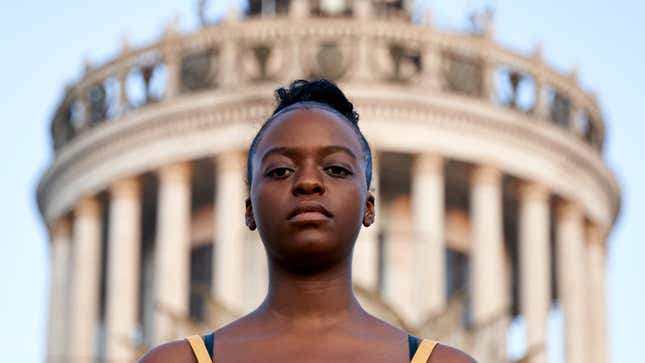
Despite some (if uneven) progress with vaccinations, we still face a pandemic of pandemics: A deadly virus that exposes and aggravates deep-seated racism and gender-bias throughout our societies and institutions. Indeed, all of the data affirm, women—particularly women of color—bear the brunt of these interconnected crises.
The facts are devastating: Women of color have been left without jobs at higher rates during Covid-19. Around the world, rising unemployment coupled with lockdowns and school closures have forced millions into poverty and the threat of violence at home. In Tunisia, for instance, reported incidents of domestic violence increased five-fold during the early days of the pandemic.
And yet, in the face of grave threats and rampant inequality, Black women and girls are rising up to say, “No more.” They’re working on the frontlines to build intersectional, sustainable, transformative movements to heal their communities—in the tradition of untold millions of women of color before them.
As we close out this Women’s History Month, I think of all the Black women who inspire us to be and do better: Women whose names we know, like Stacey Abrams, Sherrilyn Ifill and Graça Machel—and women whose names we may never know, but whose work is just as critical to progress.
We honor movements like #MeToo, which started in Latin America with #NiUnaMenos, and spread, oceans away, to the United States with Tarana Burke and millions of other survivors. We honor Black Lives Matter, a social and political force globally, incepted by three Black women: Alicia Garza, Patrisse Cullors, and Opal Tometi. And we are called to follow their lead.
For too long, the contributions of women and girls of color have remained unrecognized. And further, we know that this recognition alone is not sufficient—that we must give the power and resources to the people and communities closest to them to solve problems. The way forward is to put resources in the hands of those who are leading the groundswell of movements for equality and justice around the world.
For this reason, the Ford Foundation recently committed $15 million in seed funding to help launch the Black Feminist Fund, a new global initiative led by Black feminist advocates. These women and girls deserve our collective support and solidarity—and they need us to take our marching orders from them, rather than the other way around.
Wherever we look, women and girls—particularly from the Global South—are leading in the streets, and in the corridors of power. Girls everywhere are proving not only to be tomorrow’s leaders, but today’s, spearheading protests to disrupt the structures, strictures, and status quo of gender inequality.
In South Africa, Nigeria, Brazil, and Botswana, young girls are organizing to fight gender inequality. Purposeful has launched the Global Resilience Fund to provide girls and young women with fast, flexible grants, while allowing them to participate in the process of deciding how to deploy them. Just Associates (JASS) is creating collective, community-based solutions that address unjust structures of gender-based violence through local movement building.
Driving each of these movements is the heartbeat of feminist intersectionality, which makes them more powerful. These women leaders come from communities affected by racism, ableism, religious oppression, economic exploitation, and other forms of injustice. They know from lived experience that these injustices cannot be addressed separately. . So as part of the fight for gender equality, they’ve built movements for food and water security, disability justice, LGBTQ+ rights, violence prevention and economic opportunity—and we can all learn from their example.
We don’t need to give Black women and girls voices; they already have voices. Rather, we must hear them, heed them, and hold ourselves accountable to them—and then let them lead the way they’ve been doing for decades.
For our part, at the Ford Foundation, we’re committed to achieving gender equality and proud to support the leaders driving this work. I invite our peers and partners to join on the journey to support groundbreaking initiatives like the Black Feminist Fund—and to cultivate diverse, intersectional movements that are led by, and that center the experiences of, Black, indigenous, disabled, and LGBTQ+ women and girls.
They give us reasons for hope.
Let’s champion women and girls and trust in their leadership. Let’s affirm their power and invest in their success. The truth is: When we support girls and women of color, they make history—every time.
Darren Walker is president of the Ford Foundation, a member of the Reimagining New York Commission and co-chair of NYC Census 2020. Under his leadership, the Ford Foundation became the first nonprofit in U.S. history to issue a $1 billion designated social bond in U.S. capital markets for proceeds to strengthen and stabilize non-profit organizations in the wake of COVID-19.

